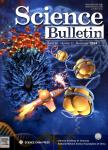IL-17A-dependent gut microbiota is essential for regulating diet-induced disorders in mice
IL-17A-dependent gut microbiota is essential for regulating diet-induced disorders in mice作者机构:State Key laboratory of Pathogen and Biosecurity. Beijing Institute of MicrobiologY and Epidemiology Beijing 100071 China Key Laboratory of Cell Proliferation and Regulation Biology Ministry of Education Institute of Cell Biology College of Life Science Beijing Normal University Beijing 100875 China State Key Laboratory for Diagnosis and Treatment of Infectious Disease The First Affiliated Hospital College of Medicine Zhejiang University Hangzhou 310003 China Collaborative Innovation Center for Diagnosis and Treatment of Infectious Diseases Zhejiang University Hangzhou 310003 China Guangdong Provincial Key Laboratory of Gastroenterology Institute of Gastroenterology of Guangdong Province Department of Gastroenterology Nan fang Hospital Southern Medical University Guangzhou 510515 China Realbio Genomics Institute Shanghai 200050 China Key Laboratory of Dairy Biotechnology and Engineering Education Ministry of China Inner Mongolia Agricultural University Hohhot 010018 China
出 版 物:《Science Bulletin》 (科学通报(英文版))
年 卷 期:2017年第62卷第15期
页 面:1052-1063页
核心收录:
学科分类:1002[医学-临床医学] 100201[医学-内科学(含:心血管病、血液病、呼吸系病、消化系病、内分泌与代谢病、肾病、风湿病、传染病)] 10[医学]
基 金:supported by the National High Technology Research and Development Program (2015AA020702)
主 题:Gut microbiota Obesity IL 17A Metagenomics
摘 要:The gut microbiota plays a key role in obesity and related metabolic disorders, and multiple factors including diet, host genotype, and age regulate it. Many studies have examined the contribution of extrinsic factors to the regulation of the gut microbiota, but the importance of the host genetic constitution cannot be ignored, lnterleukin 17A (lL-17A), a pro-inflammatory cytokine, is important in the defense against infection and diseases. Here, we investigated the association among IL-17, a high-fat diet (HFD), and the gut microbiota. Mice deficient in 1L-17A were resistant to diet-induced obesity and related diseases. Compared with the I1-17a^-/1 mice, wild-type (WT) mice challenged with HFD showed obvious weight fluctuations, such as those seen in type 2 diabetes, and hematological changes similar to those associated with metabolic syndrome. However, housing WT mice and Il-17a^-/- mice together signifi- cantly alleviated these symptoms in the WT mice. A metagenomic analysis of the mouse feces indicated that the microbial community compositions of these two groups differed before HFD feeding. The HFD mediated shifts in the gut microbial compositions, which were associated with the mouse phenotypes. We also identified potentially beneficial and harmful species present during this period, and drew net- works of the most abundant species. A functional analysis indicated pathway changes in the WT and I1-17a^- /- mice when fed the HFD. Collectively, these data underscore the importance of the host factor IL-17A in shaping and regulating the gut microbiota, which conversely, influences the host health.



